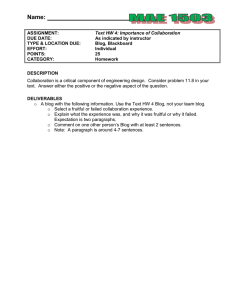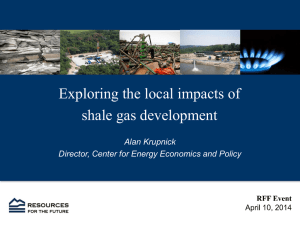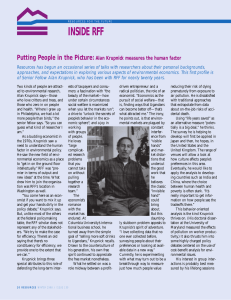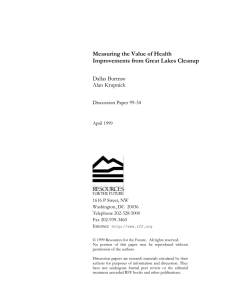COMMON RESOURCES The Best of Best of the Blog
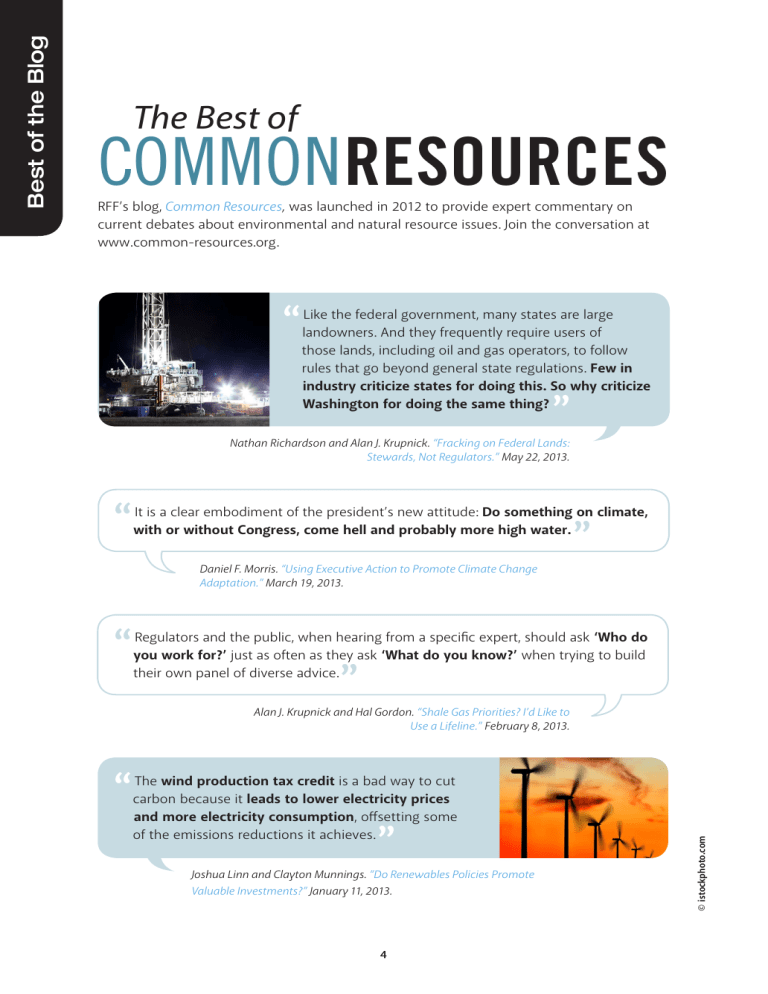
The Best of
COMMON RESOURCES
RFF’s blog, Common Resources , was launched in 2012 to provide expert commentary on current debates about environmental and natural resource issues. Join the conversation at www.common-resources.org.
“
Like the federal government, many states are large landowners. And they frequently require users of those lands, including oil and gas operators, to follow rules that go beyond general state regulations. Few in industry criticize states for doing this. So why criticize
Washington for doing the same thing?
”
Nathan Richardson and Alan J. Krupnick. “Fracking on Federal Lands:
Stewards, Not Regulators.” May 22, 2013.
“
It is a clear embodiment of the president’s new attitude: Do something on climate, with or without Congress, come hell and probably more high water.
”
Daniel F. Morris. “Using Executive Action to Promote Climate Change
Adaptation.” March 19, 2013.
“
Regulators and the public, when hearing from a specific expert, should ask ‘Who do you work for?’ just as often as they ask ‘What do you know?’ when trying to build their own panel of diverse advice.
”
Alan J. Krupnick and Hal Gordon. “Shale Gas Priorities? I’d Like to
Use a Lifeline.” February 8, 2013.
“
The wind production tax credit is a bad way to cut carbon because it leads to lower electricity prices and more electricity consumption , offsetting some of the emissions reductions it achieves.
”
Joshua Linn and Clayton Munnings. “Do Renewables Policies Promote
Valuable Investments?” January 11, 2013.
Joshua Linn and Clayton Munnings. “Do Renewables Policies Promote Valuable Investments?”
January 11, 2013.
“
Altering market prices to recognize true costs — to individuals’ health, the environment, and the economy— is not an incentive . It’s a correction —without it markets and market outcomes are flat wrong.
”
Heather L. Ross. “Econ 101: The Price Is Not Right.”
October 10, 2012.
“
Initially, as the rate rises so, too, does revenue, but then at some point higher tax rates begin to generate lower revenues . The reason is textbook economics.
At some point, the base erodes to practically nothing and the tax selfextinguishes .
”
Raymond J. Kopp. “Ezra Klein, Grover Norquist, and Carbon Taxes.”
September 17, 2012.
“
Taken at face value, the ‘clean energy promotes economic development’ claim implies that the government should raise the cost of energy even if doing so produced no environmental benefits. If such a policy sounds absurd, it is because the only reason to impose this cost on ourselves is because environmental benefits exceed that cost—not because there are no costs .
”
Timothy J. Brennan. “The Democratic Platform: Green Jobs—Really?”
September 7, 2012.
“
My own view is that a consistent source of money dedicated to parks and public lands with a fixed share to states is appropriate and needed . But a dialogue should be started about how best to allocate such funds to yield the greatest value.
”
Margaret A. Walls. “Tough Times for the Land and Water Conservation
Fund (LWCF).” July 20, 2012.
“
I personally welcome less frequent use of the word ‘sustainability.’ The word is vague, too all encompassing, and screams liberal intelligentsia. It’s not totally empty, but its value is limited, and it’s easy to co-opt.
”
James W. Boyd. “Sustainability Paranoia Rears Its Head.”
June 5, 2012.
